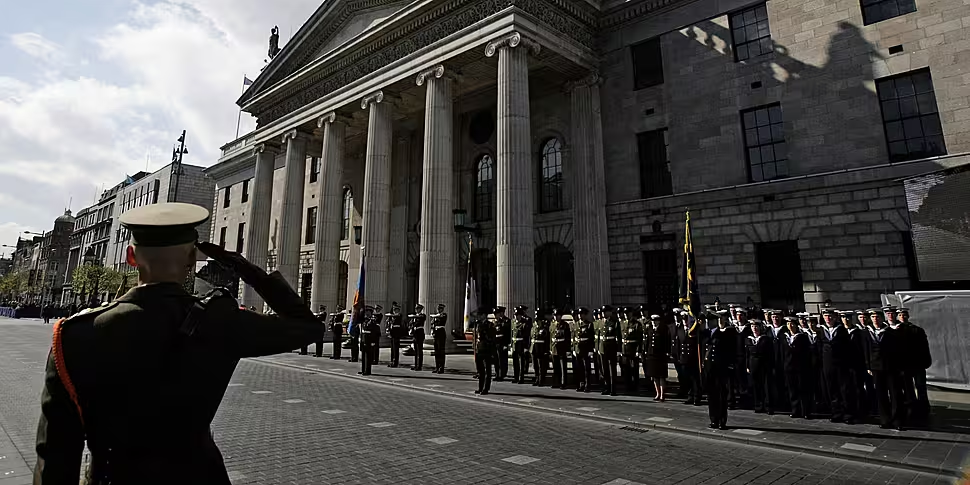Where do each of Ireland's political parties stand on the future defence and neutrality?
With just one day before Ireland heads to the polls, issues such as housing, health and the economy have dominated the campaign - but defence has barely featured.
That is despite an international climate which is perhaps more volatile and insecure than at any point since 9/11.
Two-years ago, the Commission on Defence Forces set out three possible ‘Levels of Ambition’ for the military and the Government settled on Level 2, which is defined as:
“Building on current capabilities to address specific, priority gaps in our ability to deal with an assault on Irish sovereignty and to serve in high intensity peace support, crisis management and humanitarian relief operations overseas.”
The Fine Gael manifesto describes achieving Level 2 as a “priority” and promised to set out a “a vision of progressing to Level of Ambition 3 (LOA3), which entails developing full-spectrum defence capabilities comparable to similar-sized countries in Europe.”
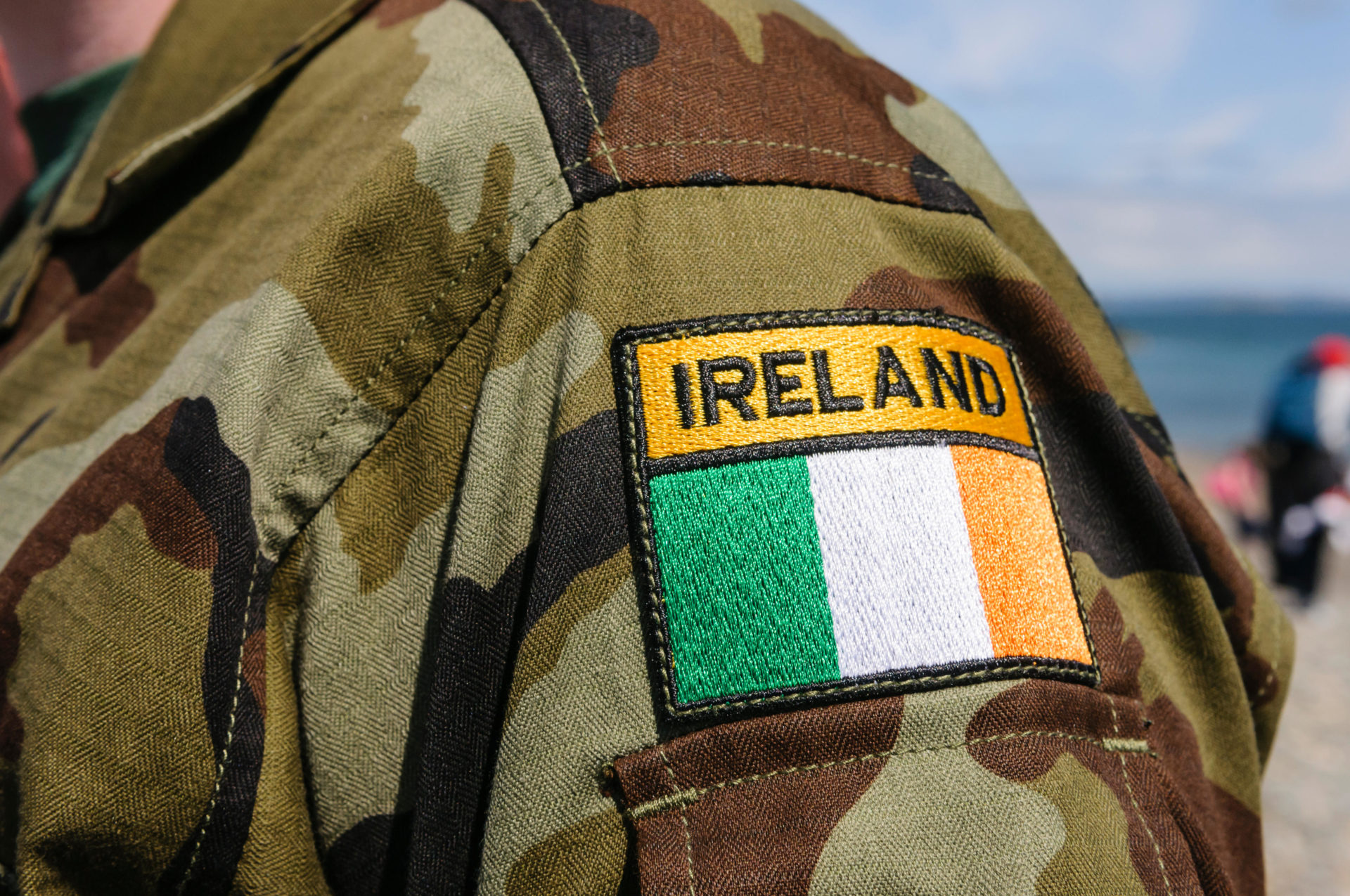 A soldier from the Irish Army. Image by: Alamy.com
A soldier from the Irish Army. Image by: Alamy.comSpeaking to Newstalk, Minister of State for Defence Jennifer Carroll MacNeill insisted the Government had already “seriously boosted” defence spending and described moving to Level 2 as the only “credible” option for the State.
“Our goal is a properly well defended State to protect our people, protect our territory, protect our energy assets and protect us, crucially, from cyber and hybrid threats,” she said.
“To be honest with you, we would like to be spending a good deal more money on more salaries of more permanent defence members.
“We would like to be spending more on increasing our capability but it is a record budget and it is an increasing budget.
“That trajectory, I hope, certainly under Fine Gael, is only going in one direction.”
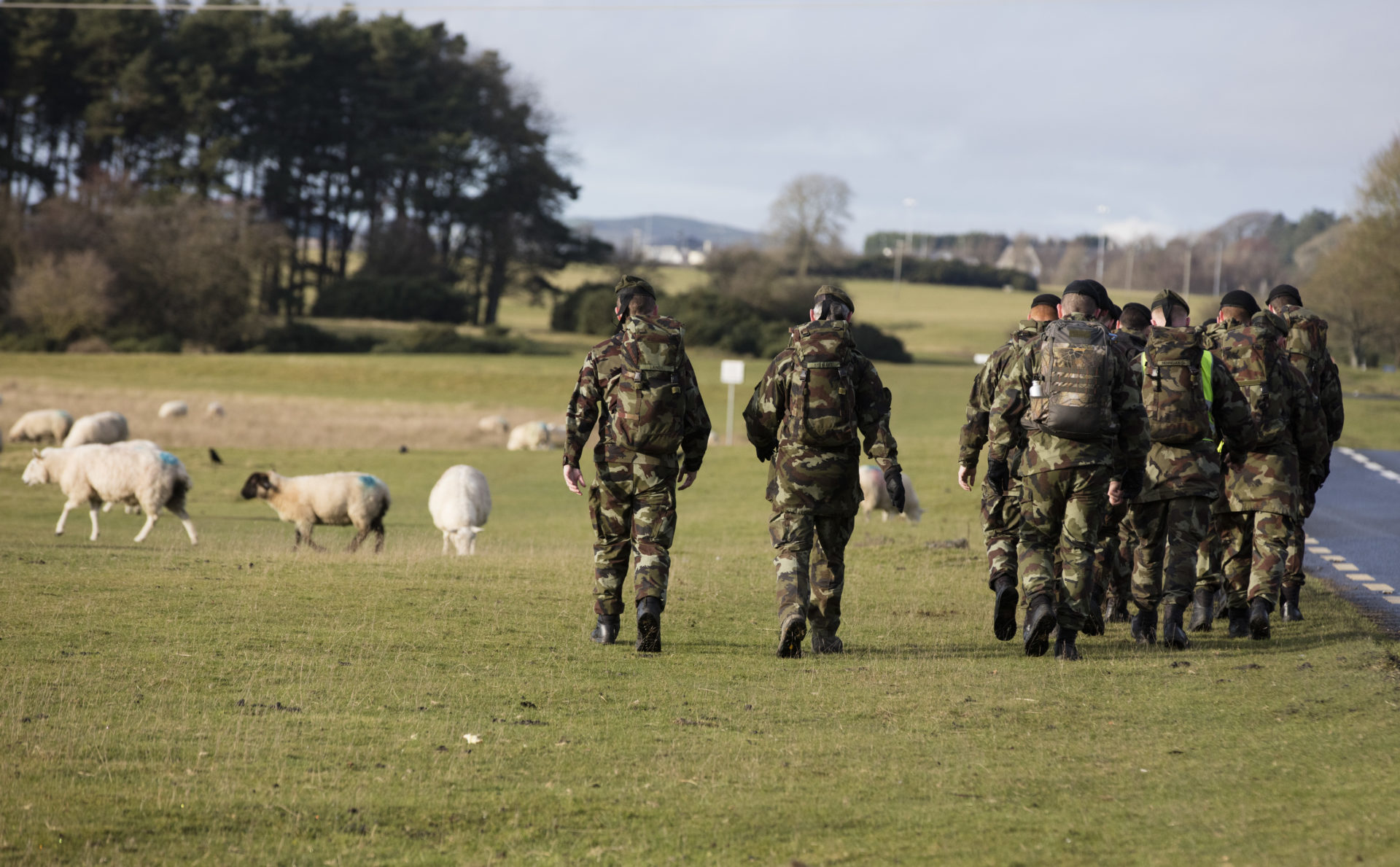 Soldiers in the Curragh Plains in County Kildare . Photo: Eamonn Farrell/RollingNews.ie
Soldiers in the Curragh Plains in County Kildare . Photo: Eamonn Farrell/RollingNews.ieIn Budget 2025, the Government allocated the Department of Defence a record €1.35 billion - up from €1 billion as recently as two-years ago.
Previously, Minister Carroll MacNeill said Level 3 would require a budget of €3 billion for the Department of Defence - more than double the current spending allocation.
She confirmed to Newstalk that that figure remains a longer-term goal.
“[Spending that amount] depends on how quickly we recruit into the Defence Forces because the bulk of that spend would, ideally, be on salaries,” she said.
“We will have 400 recruits next year; we would like that to be considerably more and we would also like people to choose to stay in the Defence Forces rather than retiring and moving to the private sector - which is what we’ve seen, in particular, in the last two years.
“I think it’s really important that people know that if you are coming out of school, that as a school leaver moving in as a private that you would get a salary of €39,000.
“A school leaver cadet is going to get €43,000 while they’re at university; these are really good starting salaries for any position in the public sector.”
View this post on Instagram
High on the Department’s shopping list is a primary radar system which will enable the Defence Forces to monitor any air traffic that enters the State.
Ireland is currently the only EU member state without a primary radar system but Minister Carroll MacNeill said she did not want to “put a date” on when it will be bought and operable.
“It’s not about running out and buying the first thing that’s available,” she said.
“We have to have the right capability to be able to see from space to the waves, to the seabed.
“So, how do we best do that? What technology is on the market? How are they interoperable?
“We clearly have the capital to do that but making sure that we’re buying the right thing for our capabilities is very important; that work is underway in the Department of Defence.”
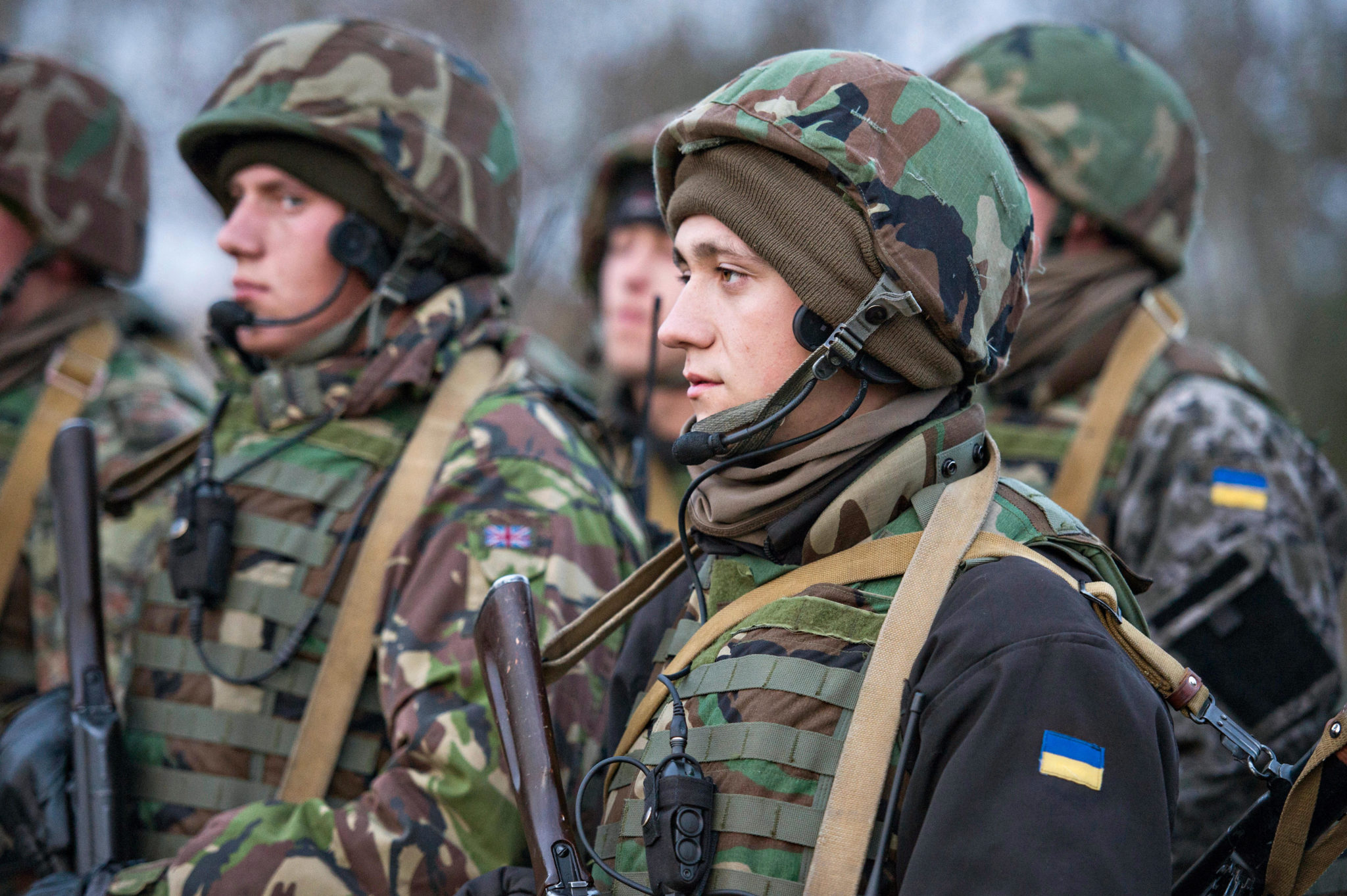 Ukrainian Army Ground Forces soldiers following a live-fire training exercise. Picture by: Alamy.com
Ukrainian Army Ground Forces soldiers following a live-fire training exercise. Picture by: Alamy.comLooming sharply over any conversation about defence in Europe is the future of Ukraine; US President-Elect Trump has previously promised to end the conflict “in a day” and his Vice President, JD Vance, is vocally opposed to financial support for Kyiv.
Since 2022, the United States has provided $64.1 billion (€62 billion) in military assistance.
By contrast, the European Union has spent €88 billion on supporting Ukraine - but much of that has been spent on humanitarian, not military, aid.
Young Fine Gael has urged the Government to begin supporting Kyiv with lethal aid but Minister Carroll MacNeill believes Ireland can continue to help Ukrainians in other ways.
“That’s not compatible with our strategy at the moment,” she said.
“We are sending money; we’ve €380 million dedicated to Ukraine in different ways.
“Of course, we’ve taken 160,000 refugees as well... So, we are looking for every different way that we can to support Ukraine in ways that are non-lethal.”
People Before Profit
Fine Gael’s position is noticeably different to that of People Before Profit, which fears the conflict in Ukraine is being used as an excuse to ramp up military spending.
The party has condemned Russia’s “imperialist” invasion of the country but is also concerned about NATO's approach to the war.
“We support the right of the Ukrainian people to resist,” TD Paul Murphy told Newstalk.
“While the Ukrainian people are absolutely right and are just in opposing the invasion, there are other agendas at play here – including western, imperialist, NATO agendas in terms of expansion and so on.
“They, ultimately, are not concerned about the Ukrainian people at all - they are a pawn in this situation.
“We are very wary of the agenda that is being pushed in the West.”
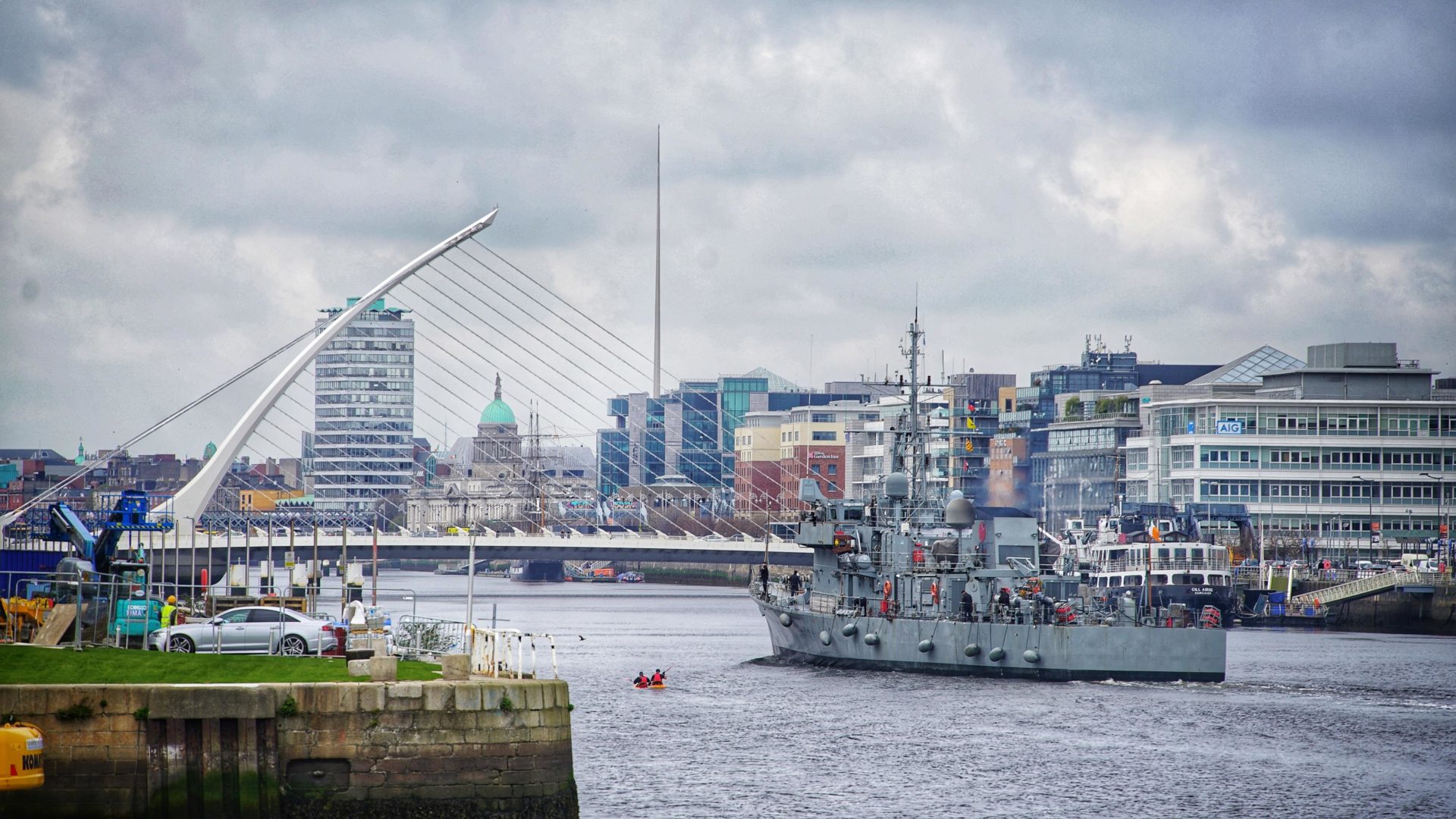 Irish navy arriving into Dublin. Picture by: Alamy.com
Irish navy arriving into Dublin. Picture by: Alamy.comThe party also wants to see Ireland take a more “consistent” foreign policy stance in favour of peace and against war.
“That means equally speaking out and standing up to Russian aggression and imperialism,” Deputy Murphy said.
“To Chinese aggression and imperialism but also US aggression and imperialism and that of Israel - which the US backs.
“So, we would be in favour of a truly independent foreign policy, which means an end to the use by the US war machine of Shannon Airport.
“An end to weapons flying through Irish airspace on their way to Israel to be used in a US-backed genocide and complete cutting off of relations with Israel.”
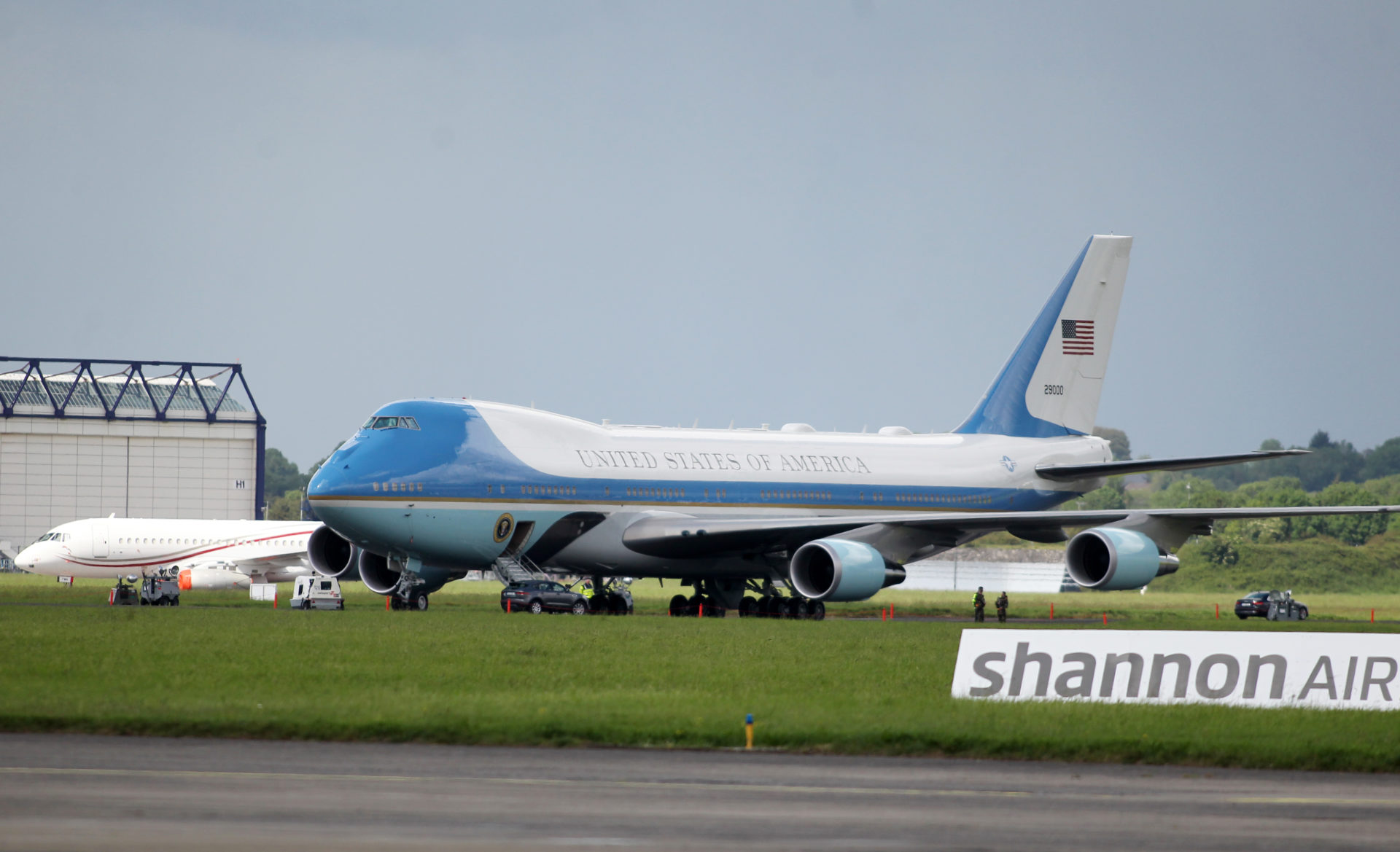 Air Force One at Shannon Airport, Ireland. Photo: Sam Boal/Rollingnews.ie
Air Force One at Shannon Airport, Ireland. Photo: Sam Boal/Rollingnews.iePeople Before Profit is also opposed to the Government’s decision to ramp up spending on the Defence Forces.
Deputy Murphy said the party favours ending the “scandal of low pay” but fears increasing military spending will ultimately undermine Ireland’s claim to be a neutral State.
“Really, what is happening here cannot be divorced from the general move to undermine and eradicate what is left of Ireland’s neutrality,” he said.
“I think the big increases in military expenditure that we’re seeing, have to be seen as an attempt to get us up to the level of military expenditure that will be needed in order to successfully apply for and gain entry into NATO.
“I think that is the medium to long-term plan of Fianna Fáil and Fine Gael.
“The increases in defence spending do not make any sense apart from increases to retain staff; the rest of it don’t make any sense in their own terms, unless you see it as part of a longer-term project of aligning Ireland with NATO.”
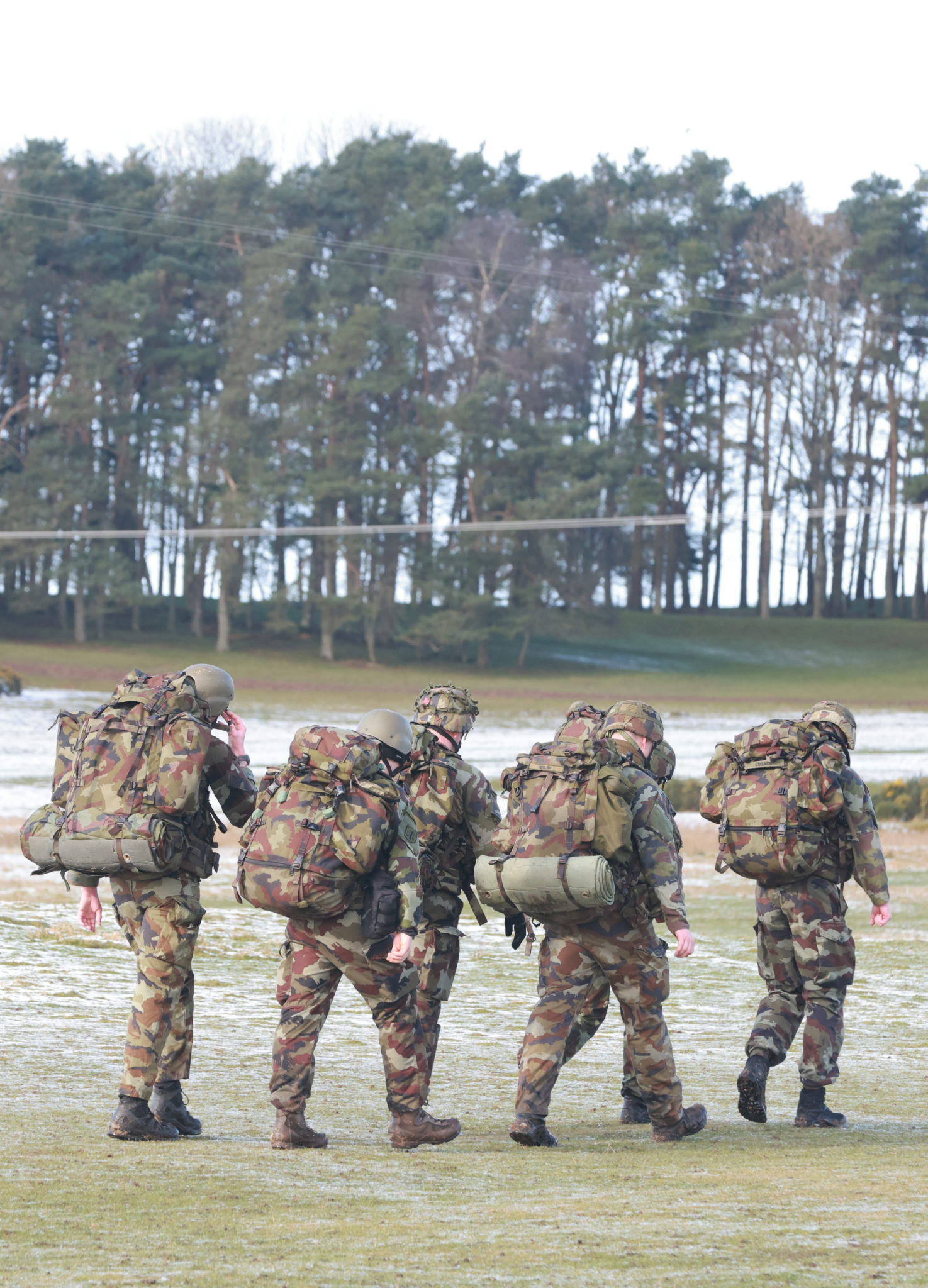 Soldiers in Kildare. Photographer: Eamonn Farrell / RollingNews.ie
Soldiers in Kildare. Photographer: Eamonn Farrell / RollingNews.ieRegarding concerns that Russia might one day attack Ireland’s energy or digital infrastructure, Deputy Murphy described it as a “bit of a red herring” that is unlikely to ever happen.
“You have a very long expanse of the Atlantic where these cables go through - where I think it’s far more likely that something like that would take place,” he said.
“Obviously, we’re against it but I don’t think we should say, ‘Because there’s all this talk of it, we should ramp up our military expenditure to such a level that we would manage to deter Russia from doing something like that.’
“The truth is, what many people don’t want to say is that a small country like Ireland is never going to be able to achieve the levels of military expenditure to actually deter any serious military force - be that Russia, US, China, Britain, whoever."
The ex-Army officer’s view
Speaking to Newstalk, Senator and former Army officer Tom Clonan said little has changed since the Commission on Defence Force’s report in 2022 and described the State’s ability to defend the nation as “literally on the floor”.
“I have been saying this for quite a number of years and I coined the phrase ‘Europe’s weakest link’ in relation to our ground, cyber, maritime and air defence capabilities,” he said.
“We now have almost zero capability; it’s nothing to do with the quality of our air crew, naval service personnel - it’s to do with an absolute lack of investment over successive Governments since the Good Friday Agreement and the peace process.
“We’re actually in a quite perilous state to the extent that I would describe our security preparedness, our defence capabilities as provocatively weak.”
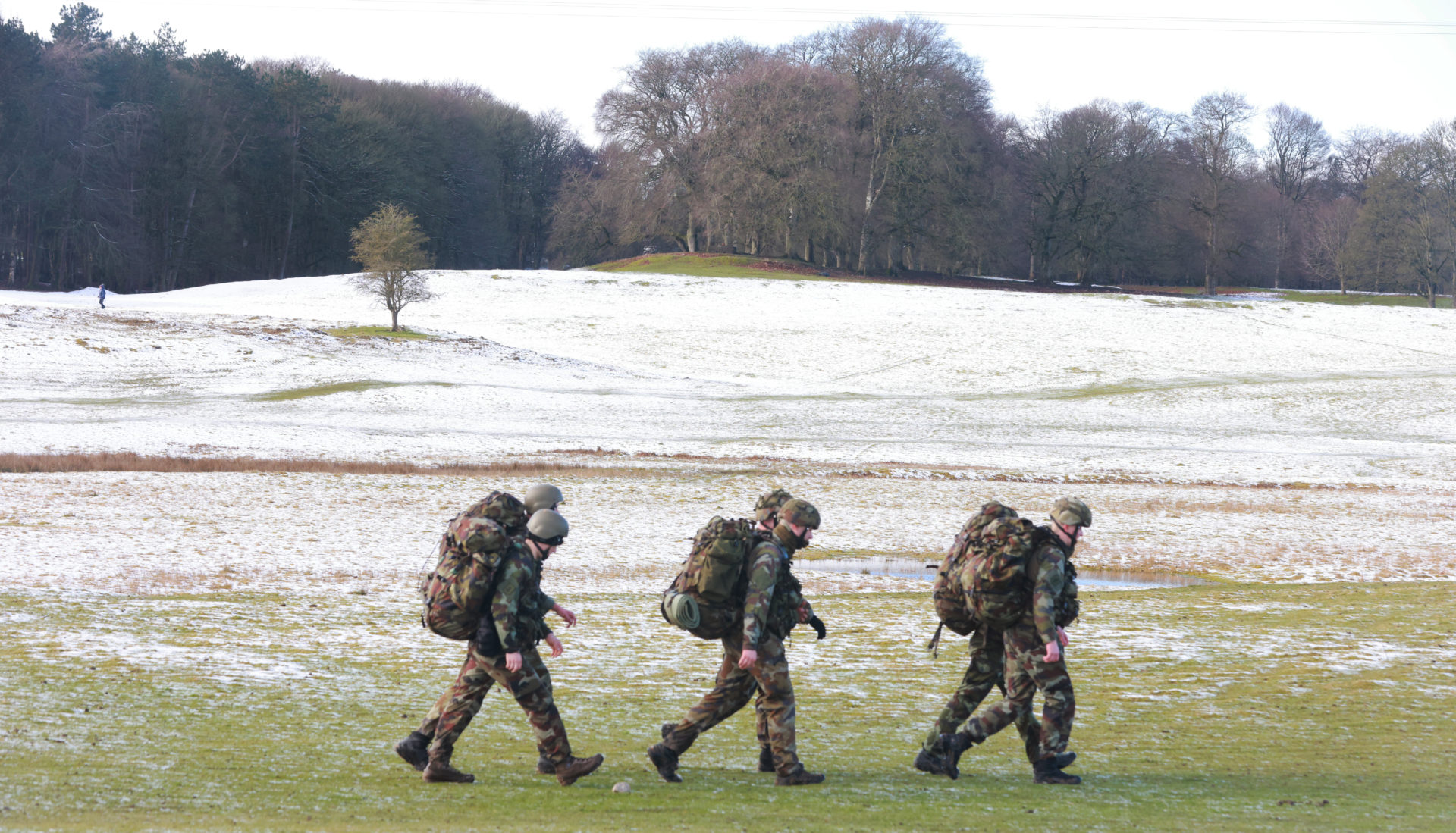 Soldiers in Kildare. Photographer: Eamonn Farrell / RollingNews.ie
Soldiers in Kildare. Photographer: Eamonn Farrell / RollingNews.ieHe remains particularly concerned that the lack of primary radar is putting the aircraft in Irish skies in danger.
“We’ve one of the busiest air traffic corridors in the world but what we don’t have is the primary radar that would allow us to see into our airspace and identify aircraft that don’t have their transponders turned on,” he said.
“So, for example, Russian aircraft that regularly enter our controlled airspace and probe it.
“It’s really reckless; it’s the equivalent of flying the wrong way down the motorway with your lights switched off.
“So, the Russians can see the civil aviation that’s passing through our air corridor but we can’t see them - nor can the pilots operating those aircraft. So, the risk of an air incident is high.”
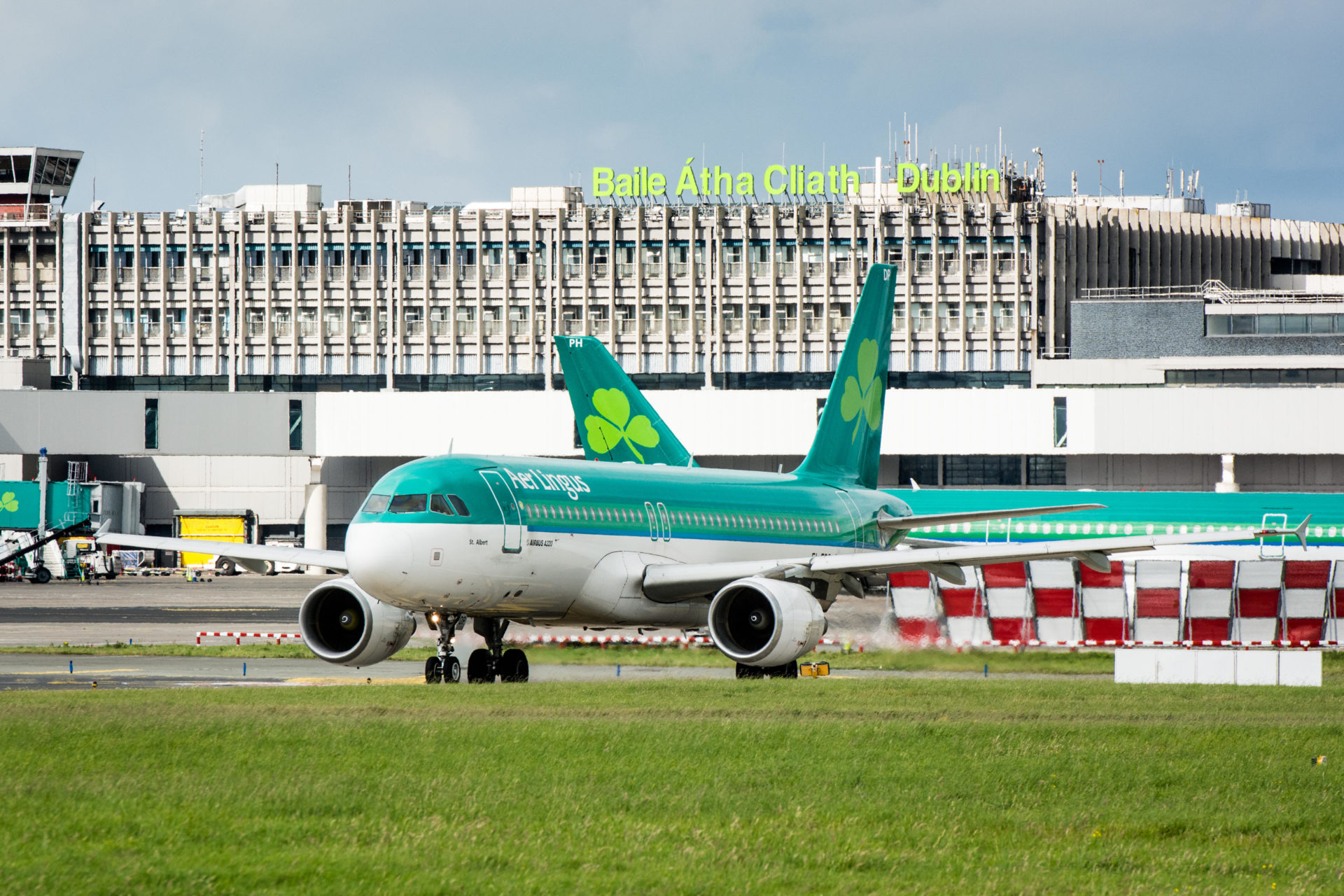 An Aer Lingus plane on ground at Dublin Airport. Picture by: Alamy.com
An Aer Lingus plane on ground at Dublin Airport. Picture by: Alamy.comAlthough Ireland is not a NATO member, the policing of Irish skies is often carried out by the British Royal Air Force - a situation that Senator Clonan believes makes a mockery of Irish neutrality.
“The only reason we know [the Russians are] there is the Royal Air Force chose to tell us; they patrol and control our airspace from a military perspective,” he said.
“So, when the Russians enter our airspace, the RAF scramble their jets and they intercept them.
“There is now a formal agreement between the Department of Defence and the Ministry of Defence in the UK to allow this situation to continue.
“For a country that declares itself to be a sovereign, independent and neutral State, it’s a bit of a joke really. We’re lucky that Britain chooses to do this but we should be doing it for ourselves.”
Defence at sea
Earlier this month, the German Government announced two underwater sea cables that link the country to Finland had been sabotaged.
A day beforehand, the internet link between Lithuania and a Swedish island also stopped working.
Amid so much tension between Russia and the European Union, Germany’s Defence Minister declared that "nobody believes that these cables were cut accidentally".
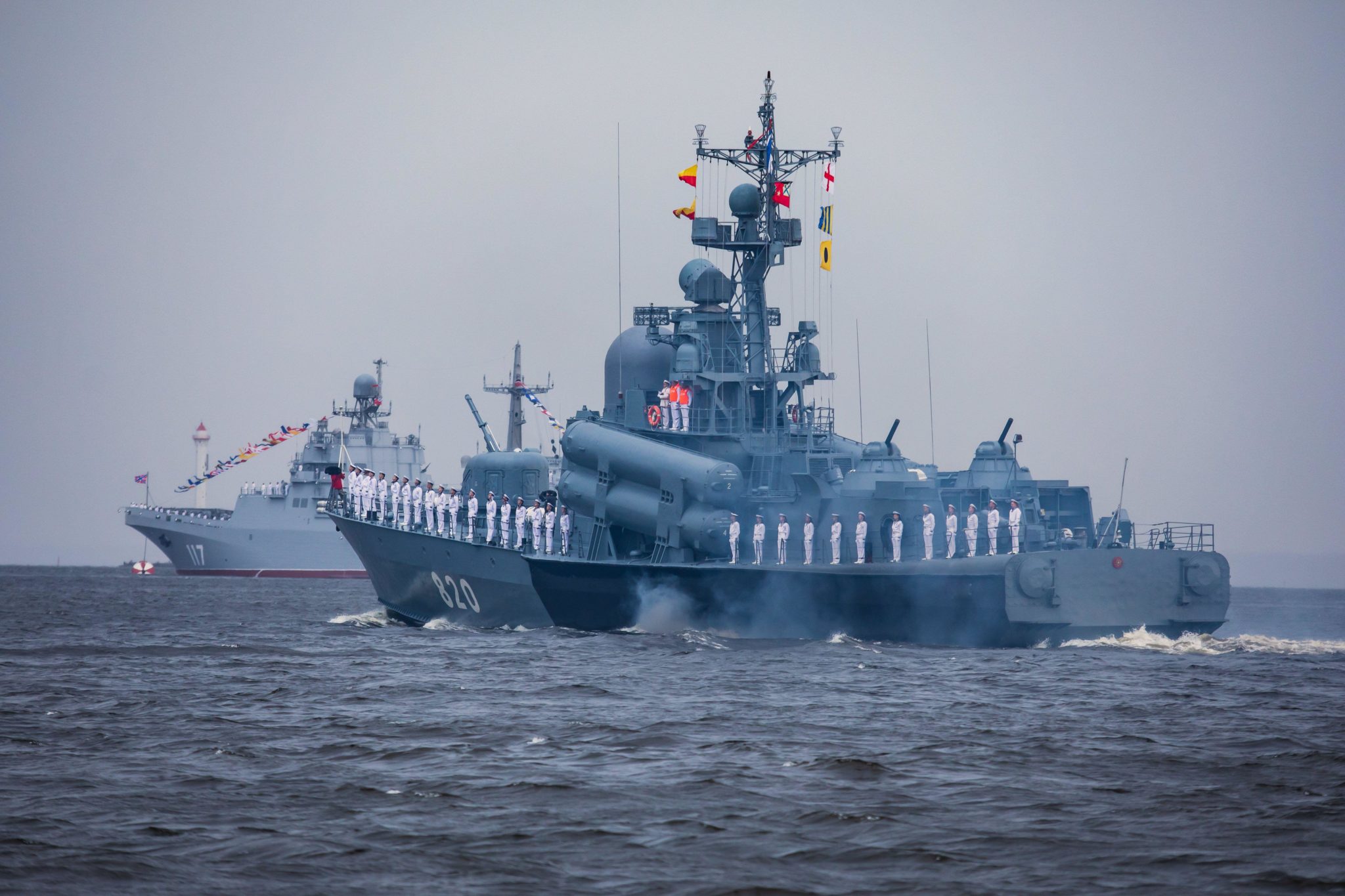 Modern Russian military naval battleships warships in the Baltic Sea. Image: Nikolay Tsuguliev / Alamy Stock Photo
Modern Russian military naval battleships warships in the Baltic Sea. Image: Nikolay Tsuguliev / Alamy Stock PhotoUnderwater cables in Irish waters are of international importance given Ireland’s strategic location between continental Europe and North America; however, Senator Clonan believes those in Irish waters are now “completely unprotected”.
“Approximately one-third of the world’s internet traffic and digital traffic passes through the almost two dozen cables that come ashore in Ireland,” he said.
“There are also other transatlantic cables that come from continental Europe and they pass through our maritime space before they all go down off the Atlantic shelf into the deep ocean just off our west coast.
“That’s where the Russian fleet was two summers ago… They positioned themselves precisely where the cables drop off into the deep Atlantic.
“We characterise ourselves as a digital economy; we store one-third of Europe’s data in our data centres but we’re not able to protect them from cyber attacks.
“Nor are we able to protect the cables from maritime interference and that’s a very serious matter.”
Other parties
Joining NATO is also something that Sinn Féin is strongly opposed to; line one of the ‘Defence’ section in the party’s manifesto states that party will ‘protect Irish neutrality’.
It remains committed to the triple lock that means troops can only be deployed overseas with the permission of the Government, the Oireachtas and the United Nations.
In its manifesto, Fianna Fáil promises to “protect and promote Ireland’s military neutrality” but also pledges “sensible reform of the ‘Triple Lock’ legislation.”
The party has previously raised concern about the possibility of Russia vetoing the deployment of Irish troops at the United Nations.
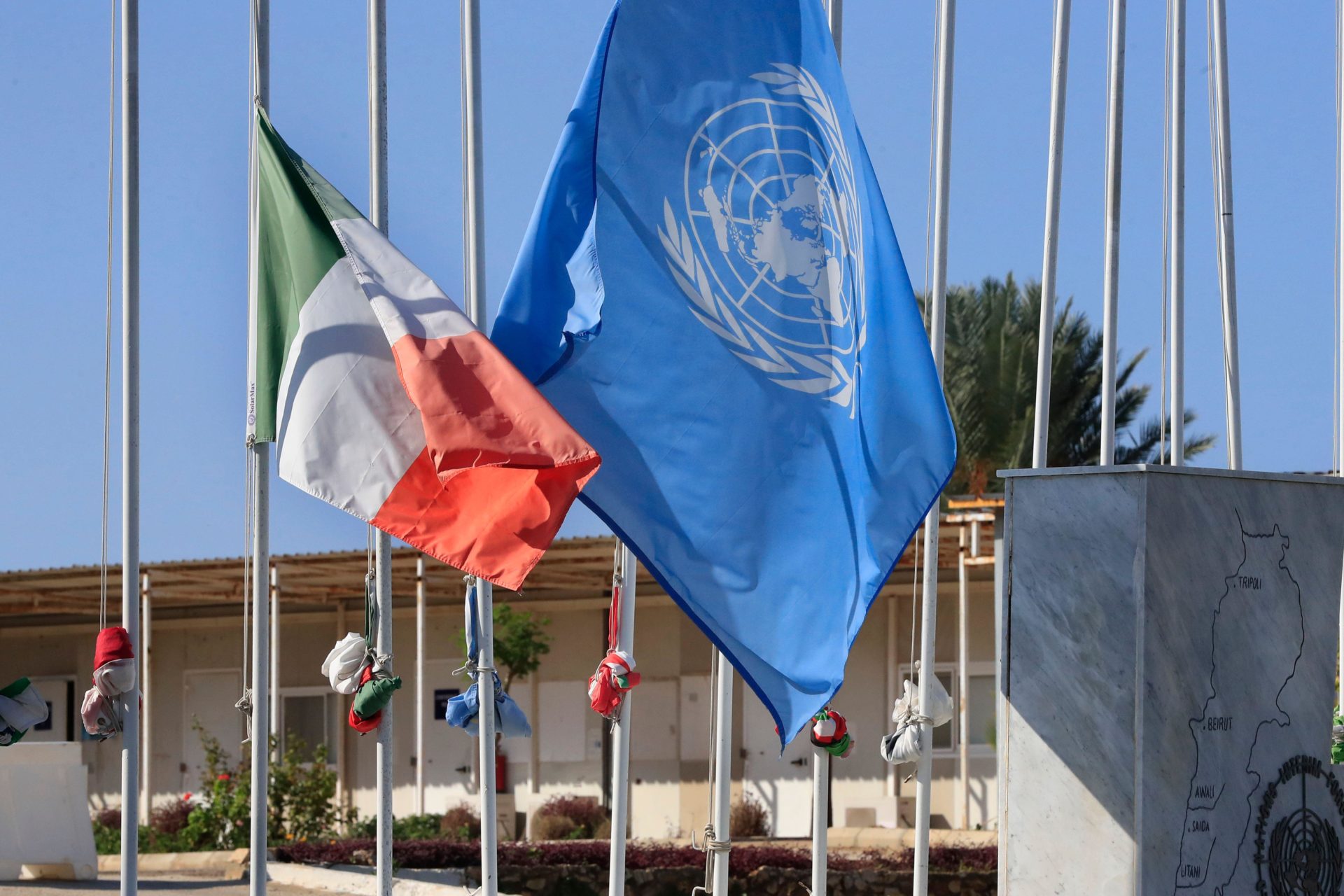 The United Nations and the Ireland flags. Picture by: AP Photo/Mohammed Zaatari.
The United Nations and the Ireland flags. Picture by: AP Photo/Mohammed Zaatari.The Labour Party has pledged to boost recruitment into the Defence Forces to meet the “current agreed strength of 9,600, and a medium-term plan to grow that by a further 2,000.”
The Social Democrats also agree with the recruitment target, which they said would “would allow [the Defence Forces] to function as required by Ireland’s security requirements.”
The Green Party has promised to support Irish neutrality, while also recognising a need to “enhance the protection of our skies and seas… as outlined in Level of Ambition 2 (LOA2) from the Report of the Commission on the Defence Forces.”
Main image shows soldiers outside the GPO. Image by: Alamy.com


